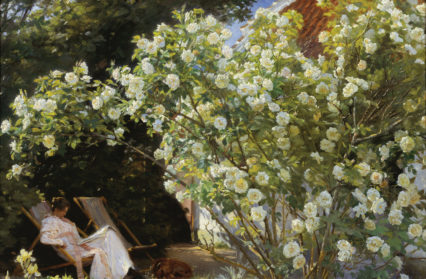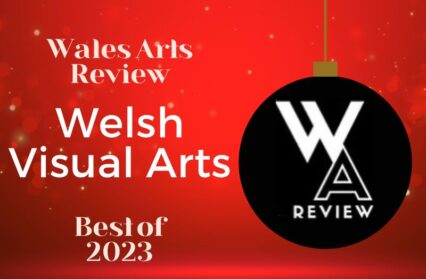It’s a Bank Holiday weekend, and the sun is shining, so what better way to kick back than with a few choice recommendations from the vaults of the Wales Arts Review archive library? We have delved deep and come up with a fistful of our top articles from our top writers from years past, looking at literature, music, film, visual arts and politics. So take your pick and enjoy your weekend.
Wales on Film: Zulu (1964) by Phil Morris
“Zulu is a perennial Christmas TV favourite: eminently quotable, it forms a matrix of reference points that facilitate a multitude of immediate intimacies between men – in particular Welshmen – for whom the trials of war have, for generations, been experienced vicariously through schoolboy comics and Playstation video games. The screenplay for the film was based on an article, one of a series on the topic of battlefield courage, written by the historian John Prebble, who peppered his subsequent script with occasional sideswipes at the savagery of colonial war. Such nods to the anti-war spirit of the nineteen sixties, however, sit awkwardly alongside the Kiplingesque thrills of imperialist adventure that provide the film with its dramatic and emotive charge….” Read on
Decadence, Decay and Myths of Freedom: Alban Berg’s Lulu by Steph Power
“An obsession with sexuality – and womens’ sexuality in particular – dominated the arts and high culture of fin de siècle Vienna into which the composer Alban Berg (1885-1935) was born. On the surface, social interaction for wealthy Viennese obeyed strict, mannered codes of behaviour but, underneath, the clash of rigid aristocratic tradition with bourgeois opulence made for a dangerously hedonistic cocktail. With the gradual collapse of political liberalism and a simultaneous awakening to social issues and injustice, many artists and cultural commentators set out to expose the decadence and moral hypocrisy of the ruling classes – to whom many, like Berg, ironically belonged….” Read on
In Conversation with Sarah Waters
“Sarah Waters, born in Pembrokeshire, is one of the most successful novelists to ever come out of Wales. Her best-selling and critically acclaimed novels are not only familiar to lovers of literature the world over, but most have also been turned into hit television serials. Her first novel, Tipping the Velvet (1998), announced the arrival of a significant new voice in historical fiction with a Betty Trask Award. She has since been short-listed for the Man Booker Prize three times, the Orange Prize twice, and was one of the faces on Granta’s prestigious 2003 ‘Best of Young British Novelists’ list….” Read on
Against the Evil of Violence: The Wales Window of Alabama by Cerith Mathias
“The street on which I am standing was at the heart of the Civil Rights Movement of 1960’s America; the concrete underfoot once pounded by the soles of marching children and baton wielding police officers. Dr Martin Luther King’s calls for non-violent protest in what he dubbed ‘the most segregated city in the US’ were met on this very corner with water cannons and the snarling jaws of police dogs. And in the Baptist Church, here on Birmingham’s 16th Street, the lives of four young girls were snuffed out by a racist bomb attack….” Read on
Kyffin Williams: A Welsh Artist in a British Art World by Douglas Iwan Dafis
“In May 1921 Alfred Zimmern, Professor of International Politics at Aberystwyth University addressed the Cambrian Society at Oxford University, and gave his ‘Impressions of Wales’. He considered the survival of the Welsh language to be particularly important. ‘Welsh,’ he said, ‘has survived because it represents something, a spirit, a culture, a national character, an atmosphere – which, unlike its compeers in Scotland and Ireland, in Cornwall and the Isle of Man, cannot survive the transformation into English.’…” Read on
Do You Know What it Means? Memories of Hurricane Katrina by clare e. potter
“clare e. potter is a Welsh poet. After completing an MA in Afro–Caribbean literature in Mississippi she lived in New Orleans for 7 years working as a consultant for the New Orleans Writing Project. Next year marks the 10th anniversary of Hurricane Katrina, the devastating storm that slashed deep, ugly scars into the city’s timeline, many of which remain unhealed. Here potter lays bare the devastating impact of those events on her beloved New Orleans….” Read on
The Age of Understatement: The Decline and Fall of Political Pop by Craig Austin
“In common with almost anyone who became obsessed with music at an early age I was initially attracted to the thrills, the kicks, the glamour and the wilful distraction; a captivating ragbag of unhindered possibility that has defined my taste in film, fiction, travel and trousers, for a lifetime. Admittedly, there have been periods when the love affair has waned, when commitments have been tested; perceived moments of betrayal, boredom and loss, but ultimately it is a devotion and a bond akin to Michael Corleone’s approximation of his unbreakable Cosa Nostra life code, the fatalistic recognition of knowing that ‘every time you think you’re out, they drag you back in again’. I’m in it up to my neck, you see, and there’s no going back now….” Read on
The Ley of the Land: R.S. Thomas’ Places by M. Wynne Thomas
“A textual mapping of Wales. What would R. S. Thomas have made of that? Well, he would have wanted to know which language was being used, of course. He shared the vision expressed in one of Waldo Williams’s great poems, when he wrote of his beloved Preseli Mountains: ‘Dyma’r mynyddoedd. Ni fedr ond un iaith eu codi/ A’u rhoi yn eu rhyddid yn erbyn wybren cân’ ‘Here are the mountains. Only one language can raise them/ And set them in all their freedom against a sky of song.’ That was written years before Bruce Chatwin popularised the aboriginal idea of song-lines, but isn’t that exactly what Waldo is talking about?…” Read on












